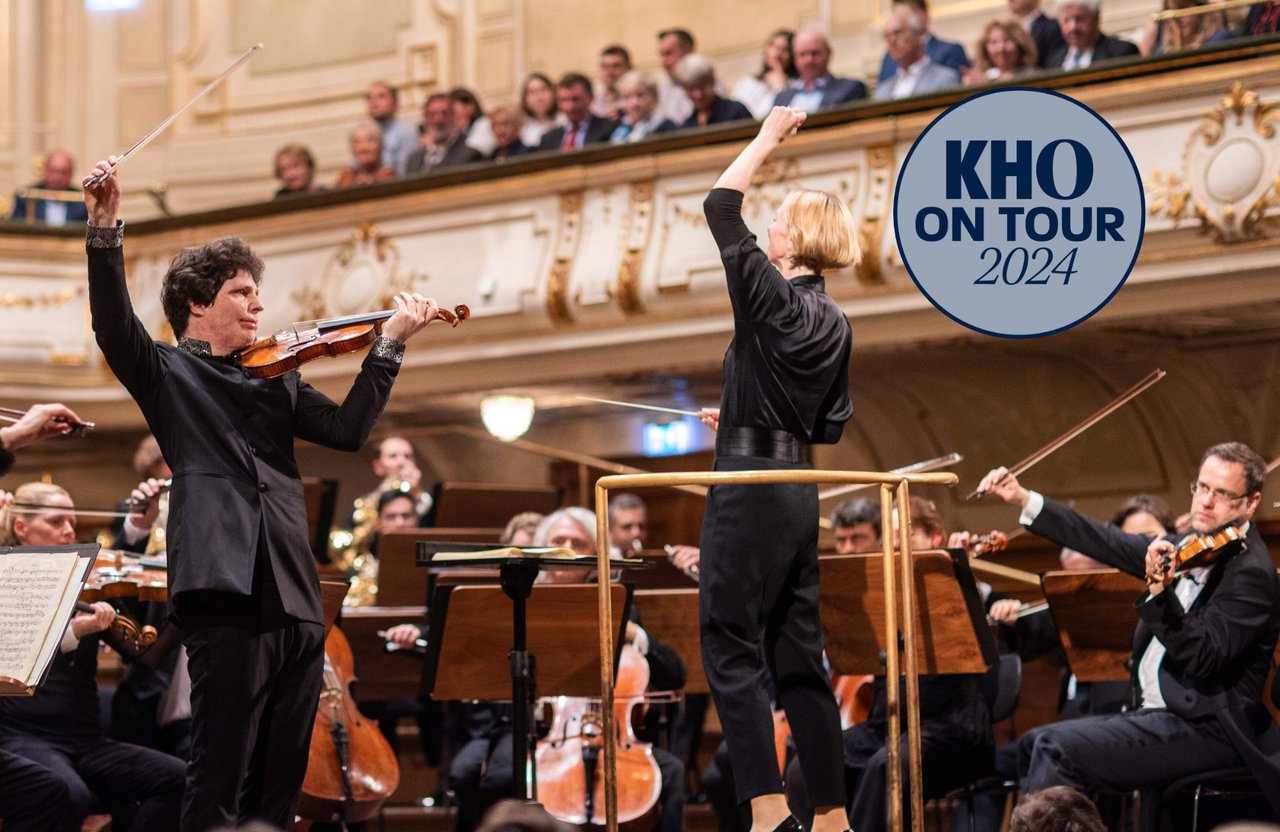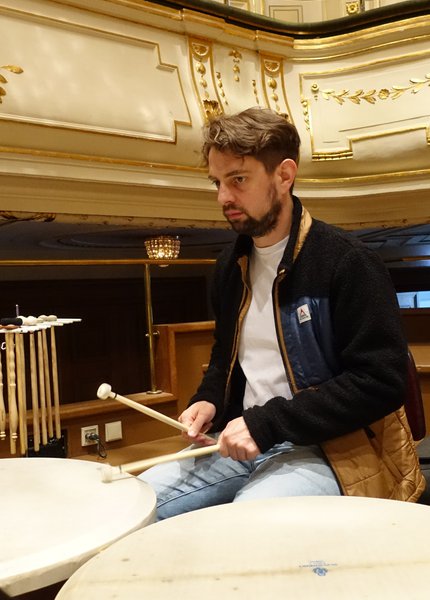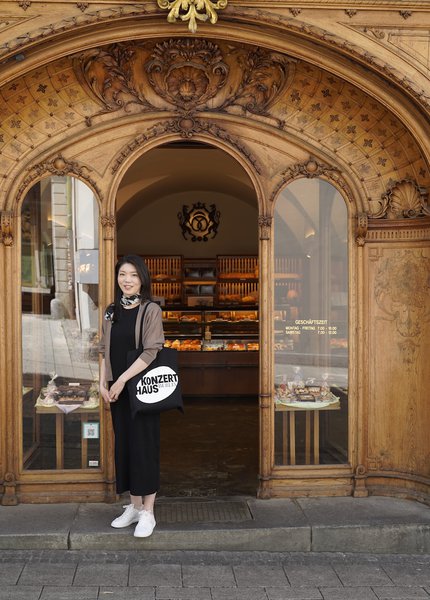13.00 Uhr
Führung durch das Konzerthaus Berlin
 © Sue Yang
© Sue Yang
Orchestra musicians are used to paying attention to tenths of a second when playing. And they have always needed a lot of patience in the course of their lives - for countless hours of practice until their fingers run by themselves and everything is well anchored in the motorical memory.
Time precision is not always guaranteed when travelling, but patience is an ideal quality: our journey from Cologne to Graz was a few hours longer than expected for both the air and the train passengers among us, but by the evening (almost) everyone had arrived in the south.
Graz, the capital of Styria, was already the European Capital of Culture in 2003 and has a charming k.u.k.- style old town with lovely little shops and excellent traditional restaurants, which more than made up for the effort of the journey. It also has the beautiful Stefaniensaal, where we give our concerts on Monday and Tuesday.
People often ask what it's like to rehearse and practise on tour: everybody always plays on their own - whether in the hotel, where you hear violin runs or a flute solo as you walk down the corridor, or on the train, where brass players pull out their mouthpieces and perform their embouchure exercises between two carriages, which can only be heard as a quiet purr. It's all about staying fit for everyone.
However, a professional orchestra like the Konzerthausorchester has much less rehearsal time together than you might think - how much is precisely regulated in the rota. Repertoire pieces such as Beethoven and Brahms are already internalized since the time everbody was at the conservatory.
Together, they always work on the interpretation, on tempi, gradual volume changes and transitions, for example. The orchestra adapts to the interpretation of the current conductor each time. The acoustics of a hall always play a tremendously important role, since the sound on stage is often very different from the sound anywhere als. And it might change quite a lot after the audience has filled the seats!
Joana Mallwitz has to keep an eye on all these details, incorporate them into her interpretation and indicate them to the orchestra. That's why there was another pre-concert rehearsal on Monday afternoon: the acoustics in the Stefaniensaal were completely different to what had had been in the Cologne Philharmonie or at home in Konzerthaus Berlin.
Pre-concert rehearsal in the Stefaniensaal. We play Brahms concerto again with Augustin Hadelich. In contrast to the concert in Cologne, the programme does not include Beethoven's ‘Eroica’, but his Symphony No. 7. The programme also includes Mozart's German Dances, in which our principal piccolo flutist Daniel Werner has a virtuosic solo!
Gilding, wood panelling and softly creaking floorboards, an organ on the stage and winding corridors behind it - after the airy post-modern ‘Weinberg’ of the Cologne Philharmonie from the 1980s, the cosy rectangular ‘shoebox’ (that's what it is actually called) of the Stefaniensaal from the turn of the century before last feels a bit like being at Gendarmenmarkt again.
While the orchestra unpacks its instruments in the dressing rooms, friendly green upholstered chairs await those of us who are listening to (parts of) the audition in the stalls because they are not occupied or are part of the ‘accompanying team’: General Director Sebastian Nordmann, Orchestra Director Ulf Werner, two members of Joana Mallwitz's staff and us from Communications - Social Media Manager Eleonora Gelmetti and text editor Annette Zerpner.
How does it sound here is the question that moves everyone, and like always, there is not too much time to answer it before the sold-out hall is opened to the audience. The audience is in a good mood, very friendly and dressed in strikingly elegant Austrian clothes - in Berlin, many concertgoers prefer a more casual style, which is perfectly fine. At the end, there is also long, enthusiastic applause for the conductor, soloist and orchestra at our second tour stop.
It's a '“home game“ for our principal timpanist Michael Oberaigner at the second tour stop. He is the only Austrian we have with us, even though he is not from Graz, but from Innsbruck. Although Styria, the ‘green heart’ of the Alpine republic, doesn't have as many rocks to offer as his closer home region, "in Austria, you only drive 10 minutes out of the city and you're already in nature and among the mountains".
While it has rained all Monday, the sun is shining today. After the first concert yesterday there is a bit of time to relax: ‘I'm just going to go for it.’
In Berlin, Michael sometimes misses the mountains - and certain foods that he fills the car with on the way back after visiting his parents with his family: ‘A simple example is Knödel bread. These are old bread rolls cut into small pieces and used to make Knödel. In Tyrol, that's the local dish. In Berlin, I would have to buy crates of old bread rolls from the bakery.’ Which would certainly lead to typically Berlin comments at the shops!

We didn't find out the answer to this question, but we did take our 1st concertmaster Sayako Kusaka for a well earned leisurely stroll through the old town.
She was even able to lead us to the Edegger-Tax bakery, which has been in existence for over 450 years, as she had already been there for a quick visit yesterday! Word of the quality of the vanilla Kipferl and other baked goods has spread as far as the Japanese media. And because quality is highly appreciated there, a branch has even opened in Kyoto! But it's special, of course, to eat them at the original location. This also applies to the excellent original Wiener schnitzel made from veal that Sayako enthused about.

And what's next? On Wednesday we'll be on the train to Nuremburg all the. There, our next concert is on Thursday night.